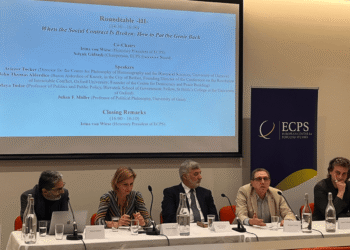Abstract
The relevant literature shows that populists come to power through various rhetorics by exploiting the incumbent orders and the problems they have caused. However, failures and disappointments in fulfilling their promises push them to employ increasingly authoritarian measures to silence society to stay in power by gradually changing the system, manipulating citizens through controlling media, and undermining fundamental institutions. By emphasizing the overall performance of populist governments during the COVID-19 pandemic crisis, this article explores the future course of populist politics and governments after the pandemic. The paper concludes that although the pandemic has clearly shown the limits and capacity of many populist governments, the political and economic conjuncture in the post-pandemic era, coupled with the high tension of power transition, might bring new “opportunities” for the use of populists. With several defects and structural weaknesses of the existing liberal multilateral order, populism is here to stay with different implications for the multilateral liberal order and globalization.
Introduction
As a dangerous external shock to the global economic and political system, the COVID-19 pandemic arrived at a stage when the negative repercussions of the Global Recession (GR) had not fully subsided, exacerbating existing problems, such as unemployment, loss of income, and inequality, with further political and social repercussions. With the advent of other “horses of the apocalypse” – such as climate change, famine, migration, terrorism, and state failure – the current pandemic could emerge as an endemic part of life worldwide through new mutations.
This article strives to explore the effect of the pandemic on the performance of populists either in government or opposition in the post-pandemic era. Taken together, widespread uncertainties, confusions, fears, and stresses are the main push factors behind populism. Nevertheless, populist rhetoric offers untested (and sometimes) romantic promises to counter the actual social, political, and economic traumas and shocks, referring to an unknown, not yet born “alternative” system. Therefore, even if it is rather more straightforward for populists to come to power with the help of such political-economic conjunctures, they are more likely to experience difficulty fulfilling the expectations their populist rhetoric has caused. The real danger is that, despite failing to fulfil their promises, they tend to employ increasingly authoritarian measures to silence society so as to stay in power by gradually changing the system, manipulating citizens through controlling media, and undermining fundamental institutions.
This article strives to predict whether the global populist environment created by the GR will turn against populist governments during and after the Global Lockdown (GL) of the pandemic. However, the analysis of the performance of mainstream and populist parties during the COVID-19 pandemic is quite a challenging task as it is complicated by several other factors such as the ongoing global power shift and the accompanying national, regional and global geopolitical conflicts. In addition, countries’ overall political and economic situations just before the pandemic crisis have also been immensely influential on their performance. All these parameters have brought additional evaluation criteria other than their actual economic performance during the pandemic and ended up prolonging their lifespan.


